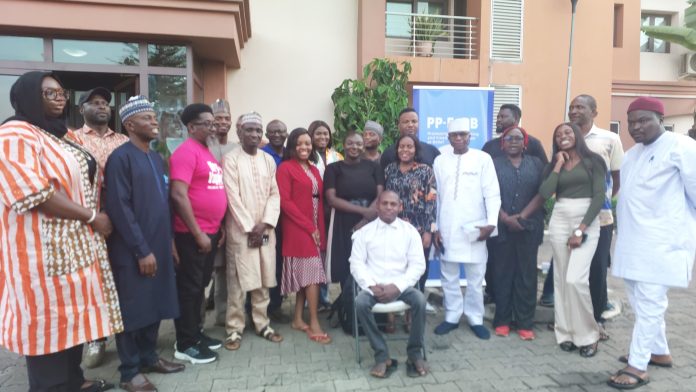In a bid to promote peaceful coexistence amid rising religious tensions, Search for Common Ground has organized a two-day Refresher Course on Conflict Reporting for journalists across Nigeria.
The training, held in Abuja, brought together 20 journalists under the “Promoting and Protecting Freedom of Religion or Belief” (PPFoRB) project, backed by the Dutch Ministry of Foreign Affairs.
Speaking at the event, Project Manager of PPFoRB at Search for Common Ground Nigeria, Gaius Dachet, outlined the key goals of the three-year initiative covering Nigeria’s 36 states and the Federal Capital Territory.
“Our first goal is to establish an early warning and early response platform to prevent violations that could escalate into violence,” Dachet said.
He noted that a toll-free hotline, 080-0000-2233, has been set up for citizens to report threats or violations relating to religious freedom.
He explained that beyond early detection, the project also supports victims of religious-based violations with legal aid, livelihood support, shelter, and psychological counseling. “Victims whose rights have been trampled due to their faith or beliefs are not left alone. We work with lawyers, counselors, and other stakeholders to offer them the help they need,” he added.
Dachet stressed the importance of public enlightenment in curbing religious conflicts, noting the pivotal role of the media. “This is why the media is crucial. Through responsible reporting, journalists can change perceptions and promote peaceful coexistence,” he said.
Also speaking at the training, Senior Media Officer for the project, Katlong Dasat, said the refresher course aimed to deepen journalists’ understanding of conflict-sensitive reporting and common ground journalism.
“As journalists, they have the power to build or break societies. We are equipping them to be sensitive, especially in how they craft headlines and report religious issues,” Dasat stated.
She clarified that the project is rooted in human rights, not religion, citing Article 18 of the Universal Declaration of Human Rights and Nigeria’s Constitution. “Freedom of religion or belief is a fundamental human right tied to freedom of expression, movement, and association. Every human being is entitled to it by virtue of their humanity,” she emphasized.
Dasat also commended the outcomes of previous training sessions, noting that many journalists have since become champions of religious freedom within their media houses. “It’s like a drop in the ocean, but with persistence and the support of more journalists, the impact grows stronger,” she said.
Sharing his experience, General Manager of Dream FM, Enugu, Oke Odogwu, said the training opened his eyes to critical areas where broadcast journalists can do better.
“We came for a peace meeting which actually brought a lot of insights on what journalists could do differently as broadcast journalists,” he said.
“We found out there’s some conflict sensitivity reporting after balance when we are reporting also. I have also learned negotiation skills in terms of how to mediate in communities and how to balance reporting when you are doing issues concerning religions and beliefs. It’s a take-home. We need to take it back to our stations and see how we can make our presenters, producers, and program developers begin to talk about peace, promote peace, and allow freedom of beliefs and religion in various parts of the world and in our states,” Odogwu added.
Both Dachet and Dasat urged journalists to act as ambassadors of tolerance and human rights, using their platforms to advocate for respect and peaceful coexistence.
The PPFoRB project also collaborates with social media influencers to widen its reach and publicize the short code 7224 for urgent reporting of religious violations. In one instance, a distress call through the hotline reportedly saved a life in Sokoto by preventing mob violence.
With initiatives like this, Search for Common Ground hopes to foster a more tolerant Nigeria where freedom of belief is respected and protected.



